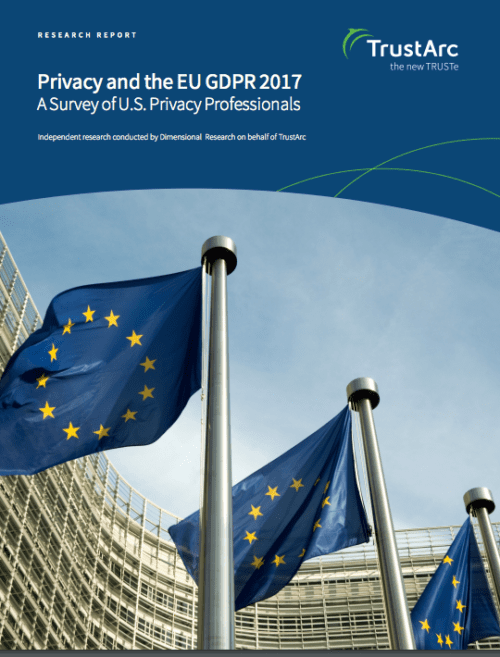And How to Improve the Bottom Line
Sales and use tax (SUT) compliance for manufacturers has become so complex that the costs are directly impacting their bottom lines. The manufacturing industry realized the benefits of advancing production with technology long ago; however, those cost savings and quality benefits are not just limited to the production floor. This article examines the challenges and growth opportunities that come as a result of innovating SUT compliance processes.
Like innovation across industry, manufacturing technology looks very different than it did just a decade ago. Advancements like automation, nanotechnology, cloud computing and the internet of things (IoT) are helping manufacturers adapt to the rapidly evolving needs of their customers. However, these improvements have yet to be deployed in support of increasingly challenging tax compliance activities.
In order to understand why the manufacturing industry is slow to innovate when it comes to sales and use tax (SUT) compliance, my team and I enlisted Aberdeen to conduct an in-depth survey of manufacturers’ SUT costs and challenges. Our study, entitled Sales and Use Tax Compliance for Manufacturers: Boost Confidence, Ensure Accuracy, covered a wide swath of manufacturers that bring in from $50 million to over $2 billion in annual revenue. Despite the size of the company, our study revealed that SUT compliance deficiencies are hitting manufacturers’ bottom lines – and hard – but luckily, there are leaders in the space that have implemented strategies to help avoid these costs. The first step in employing an innovative compliance strategy is to educate executives about the compliance deficiencies that are creating risks and costs for their businesses.
Deteriorating Confidence and Growing Concerns
Leadership may be unaware of the challenges that are draining their businesses. Our study revealed that on a scale of 1-10, C-level executives list an 8.16 in compliance confidence, while those actually working on compliance efforts are much less confident, with scores ranging from 7.2 to 7.5. Collectively, we found that the biggest costs and risks largely fall under these three areas:
- Increased audit frequency and the cost to support
- Opportunity costs stemming from a drain on internal resources
- Audit penalties resulting from inaccurate filings
Audit risks and concerns are a common theme across all size manufacturers. Nearly half of the businesses surveyed note an increase in audit frequency and corresponding increases in the costs to support those audits. Manufacturers report that the average penalty incurred with an audit last year was $55,070. And there’s more: the direct drain on the company’s bottom line also includes the costs of time and employees’ efforts to prepare and respond to audits.
While we can’t accurately quantify the dollar amount of lost opportunity costs, we do know that employees are spending a lot of time keeping up with quickly changing tax rules. Researching and administering tax rule and rate changes, managing customer exemption data (exemption certificates) and time spent responding to auditor requests are key tasks that take employees’ time away from revenue-producing activities. As new processes are required, employees weighed down by compliance burdens are also performing poorly, causing even greater risks and costs once errors are exposed. Such challenges are less visible to executive and C-suite level leaders who are removed from the management of these employees’ day-to-day workflows.
Winning Strategies and Technology’s Role
Tax, IT and finance leaders would do well to recognize the positive impact that a more strategic approach to their tax compliance technology and processes could have in helping the organization adapt to this rapid change. Beyond SUT compliance issues and challenges, our study also examines how manufacturers are leveraging compliance as an opportunity to expand and grow. Within the survey framework, these manufacturers are denoted as “Leaders” (the top 35 percent of performers) versus “Followers” (the bottom 65 percent of performers). The top SUT compliance strategies listed by Leaders include:
- End-to-end compliance integration to improve internal processes
- Additional hiring to support increased workloads
- More technology investment to automate and streamline workflows
- Process and information centralization
- Internal auditing and verification to ensure accuracy and audit readiness
Of all these strategies, our study shows that 77 percent of Leaders manage their SUT compliance in one centralized location. Therein, all required information and control resides in one location, which creates better oversight of the overall process. To centralize functions, manufacturing Leaders are investing in a common technology platform to help them better manage the compliance process across multiple channels, products, jurisdictions and business units. The centralized platform also helps them better manage their transactional data, which helps reduce errors and simplifies audit defense. These Leaders have invested in a variety of automation tools to assist in their SUT compliance. For example, 92 percent have implemented a tax calculation system, 77 percent have implemented a tax return preparation and filing solution and 54 percent have implemented an exemption certificate management system.
By shifting manual tasks to automated ones, Leaders are able to stay ahead of the continually changing, complex and risky tax compliance landscape. To reduce errors, our study shows that 69 percent of Leaders have realized the benefit of real-time updates for regulatory and filing changes, while 62 percent have automated verifications for their accounts payable function. This gives manufacturers an efficient payables review to ensure they pay vendors accurately in complete compliance with the latest SUT tax rates and rules. When it comes to processes, additional automation benefits include:
- Easily identifying internal areas for improvement
- Quickly accessing real data needed to defend tax decisions
- Seamlessly managing and avoiding audits, ultimately reducing cost drains
The manufacturing industry realized the benefits of automating manufacturing processes long ago for producing their goods. However, those cost savings and increased quality benefits are not just limited to the production floor. Automation empowers controllers and tax managers to create a solid process in meeting indirect tax compliance requirements to reduce risks, costs and employees’ compliance challenges. By freeing up resources and capital, manufacturing leaders are proving that elevating their compliance burdens with technology supports healthier and more holistic business growth.
See the infographic below for stats on the Sovos study.




 Matt Walsh is Principal, Indirect Tax at Sovos. Matt provides strategic direction, guidance and recommendations for product enhancements and development to keep Sovos customers ahead of complex regulatory changes. Matt is also tasked with fostering both government and industry relationships that support Sovos’ global Intelligent Compliance initiatives. Matt has over 17 years of experience in tax compliance, which includes developing a tax counsel within the Sovos internal tax department. He later advanced to director of tax research and senior director of tax positions within the company before taking on his current role. Matt is currently a member of the Technical Advisory Group of the OECD (Working Party #9), which drafts model legislation and implementation guidelines for the taxation of cross border services.
Prior to Sovos, Matt served as team manager at John Hancock Financial Services. He holds a BS in Business Administration from the MA College of Liberal Arts (formerly North Adams State College) as well as a JD from the New England School of Law.
Matt Walsh is Principal, Indirect Tax at Sovos. Matt provides strategic direction, guidance and recommendations for product enhancements and development to keep Sovos customers ahead of complex regulatory changes. Matt is also tasked with fostering both government and industry relationships that support Sovos’ global Intelligent Compliance initiatives. Matt has over 17 years of experience in tax compliance, which includes developing a tax counsel within the Sovos internal tax department. He later advanced to director of tax research and senior director of tax positions within the company before taking on his current role. Matt is currently a member of the Technical Advisory Group of the OECD (Working Party #9), which drafts model legislation and implementation guidelines for the taxation of cross border services.
Prior to Sovos, Matt served as team manager at John Hancock Financial Services. He holds a BS in Business Administration from the MA College of Liberal Arts (formerly North Adams State College) as well as a JD from the New England School of Law.







